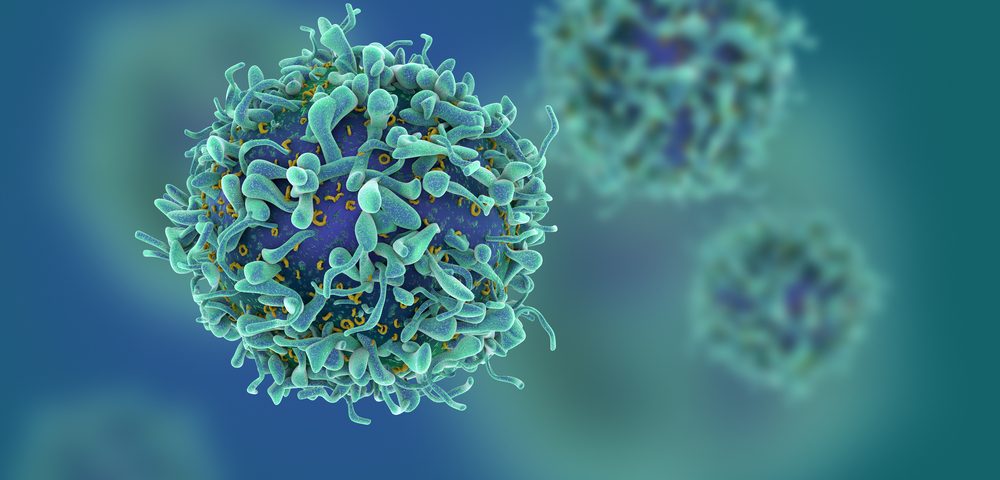The California Institute for Regenerative Medicine has given Fate Therapeutics a $4 million grant to advance its natural killer cell immunotherapy FT516 into clinical trials.
At the heart of Fate’s therapy is engineering white blood cells known as natural killer cells to do a better job of killing tumor cells.
Natural killer cells play a key role in preventing and eliminating tumor cells. Once immune system antibodies bind to cancer cells, the body sends a signal that attracts immune cells to the cancer, where they attack it. Natural killer cells are a major participant in the process, which scientists know as antibody-dependent cellular cytotoxicity.
Natural killer cells use a protein on their surface called CD16 to bind to antibodies. But some cancer patients have low levels of CD16 on their natural killer cells, eliminating their ability to fight tumors.
FT516 is a natural killer cell product derived from stem cells. Fate engineers it to produce a special CD16 protein whose levels remain high in natural killer cells. The engineered CD16 protein also binds antibodies to cancer cells more efficiently than naturally occurring CD16.
Fate said FT516 has shown strong, long-lasting anti-tumor activity in animals and in cells grown in a laboratory. The company hopes to develop FT516 into a treatment against several types of tumors, either alone or combined with monoclonal tumor-targeting antibodies. Monoclonal antibodies are artificially produced antibodies directed to a single target — in this case, tumor cells.
Fate believes it can produce FT516 in sizable uniform batches to treat a large patient population. It is designed to restore a patient’s immune cell function after cancer suppresses that function. It is also designed to boost the anti-tumor activity of monoclonal antibodies that target tumor cells.
“CIRM is pleased to support the continued development of FT516 and Fate Therapeutics’ first-of-kind approach to off-the-shelf cancer immunotherapy using clonal master iPSC [stem cell] lines, which can serve as a renewable cell source for large-scale, cost-effective manufacture of well-characterized, uniform cell products,” Maria T. Millan, the president and CEO of the regenerative medicine institute, said in a press release.
“The adoptive transfer of healthy allogeneic donor NK [natural killer] cells has been shown to be well tolerated in patients and has not been associated with the known risks of allogeneic T-cell immunotherapy, such as graft-versus-host disease,” she said. An allogeneic donor is one whose biological characteristics match those of the person receiving the donated material.
“This suggests that FT516 can be reliably administered without individual patient matching restrictions and used off-the-shelf to treat a large patient population,” Millan said.
The first clinical trial of FT516 is expected to study its safety and patients’ ability to tolerate it. It will be tested in combination with a monoclonal antibody therapy that the U.S. Food and Drug Administration has approved.
“FT516 has the potential to address a significant unmet need for more efficacious treatments across multiple solid-tumor types by restoring a patient’s immune cell function and enhancing the therapeutic effect of monoclonal antibody therapy,” said Scott Wolchko, the president and chief executive officer of Fate Therapeutics. “We are honored that CIRM [the regenerative medicine institute] has recognized the potential therapeutic value of FT516 as well as the unique advantages of using clonal master iPSC lines to manufacture a well characterized, uniformly engineered cell product in large batches for off-the-shelf use.”


